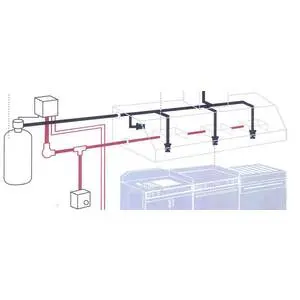Getting your restaurant inspected by the county is a critical step that must be met before its grand opening. Every community has different requirements, but all require that your restaurant passes at least one health inspection and adheres to a variety of other ordinances prior to opening.
The food service industry experts at ACityDiscount recommend following these steps to put your restaurant on the path toward certification:
Step 1: Education
If you're new to the foodservice industry, it can be beneficial to look into restaurant certification courses. These community courses typically take one day to complete and break down the basics of running a commercial kitchen.
Step 2: Contact the inspector
Before making any purchases, contact local inspectors to ask questions about codes and kitchen design. By asking questions before making major appliance purchases and having them installed, you can prevent many costly mistakes.
Step 3: Design your kitchen
Using this information about food safety and local regualtions, design your kitchen's specs to adhere to these standards. Research and install necessary restaurant equipment like commercial hoods, ranges, refrigerators, food prep tables, sinks, etc.
Step 4: Schedule an inspection
Once you're confident your kitchen is up to code, schedule an inspection. The building / fire inspectors will check the walls, restaurant equipment, ventilation and safety features, and local health inspectors will conduct a thorough health inspection. Health inspectors will check sanitary conditions to ensure proper food storage, handling, serving, etc., along with employee safety issues as well.
Step 5: Apply corrections
If you do not pass your inspection, you must make corrections immediately. Apply those corrections, listen to any suggestions made during the inspection process, and contact the inspector to look over everything once more. Restaurateurs must get approval and certification from inspectors before opening.
Step 6: Build a rapport
Health inspections are not the enemy; they are meant to ensure a safe working environment for employees and a safe eating experience for patrons. Build a positive rapport with your inspector because you'll likely be working with him or her in the future, as you will be inspected periodically moving forward.


